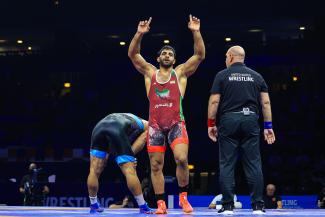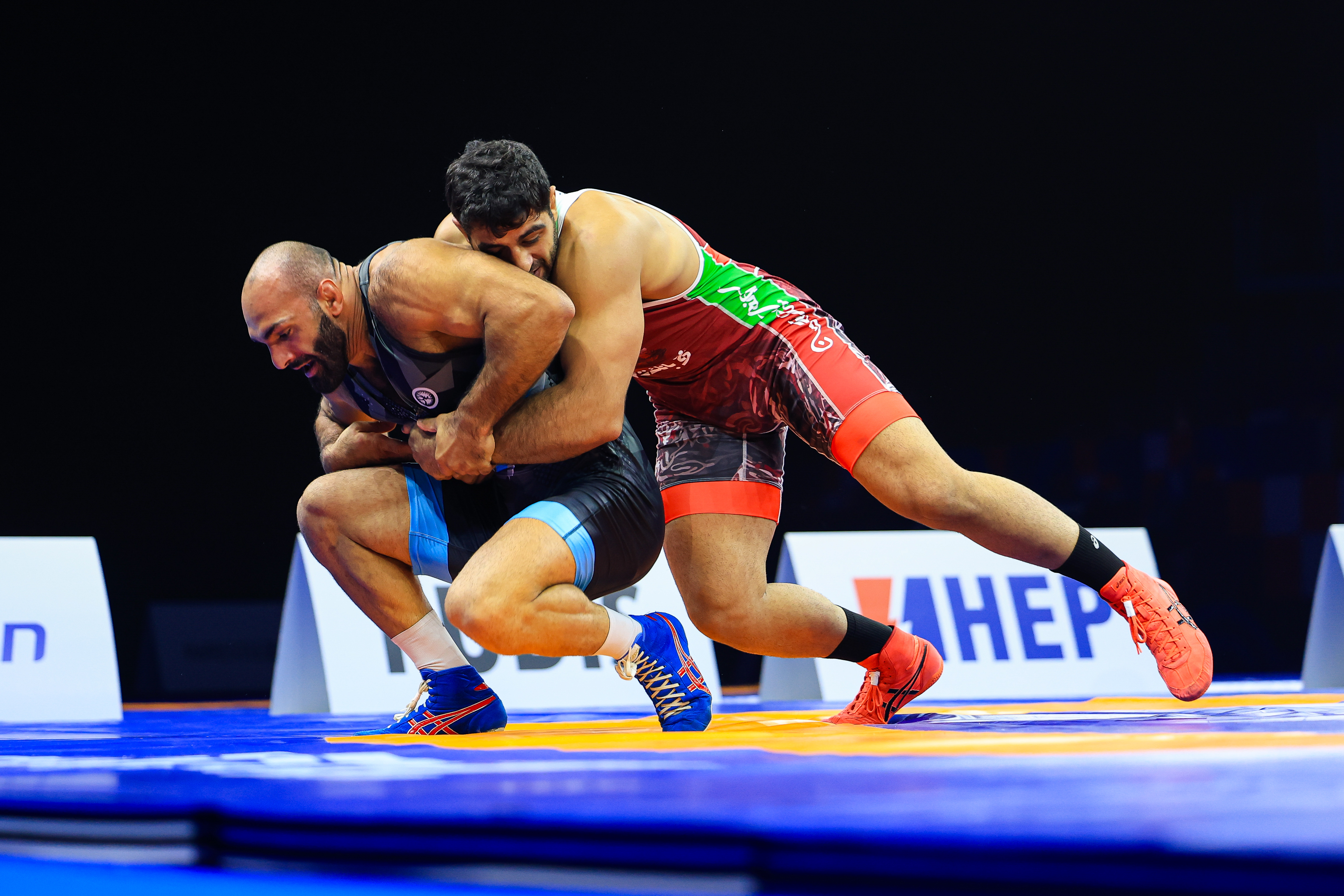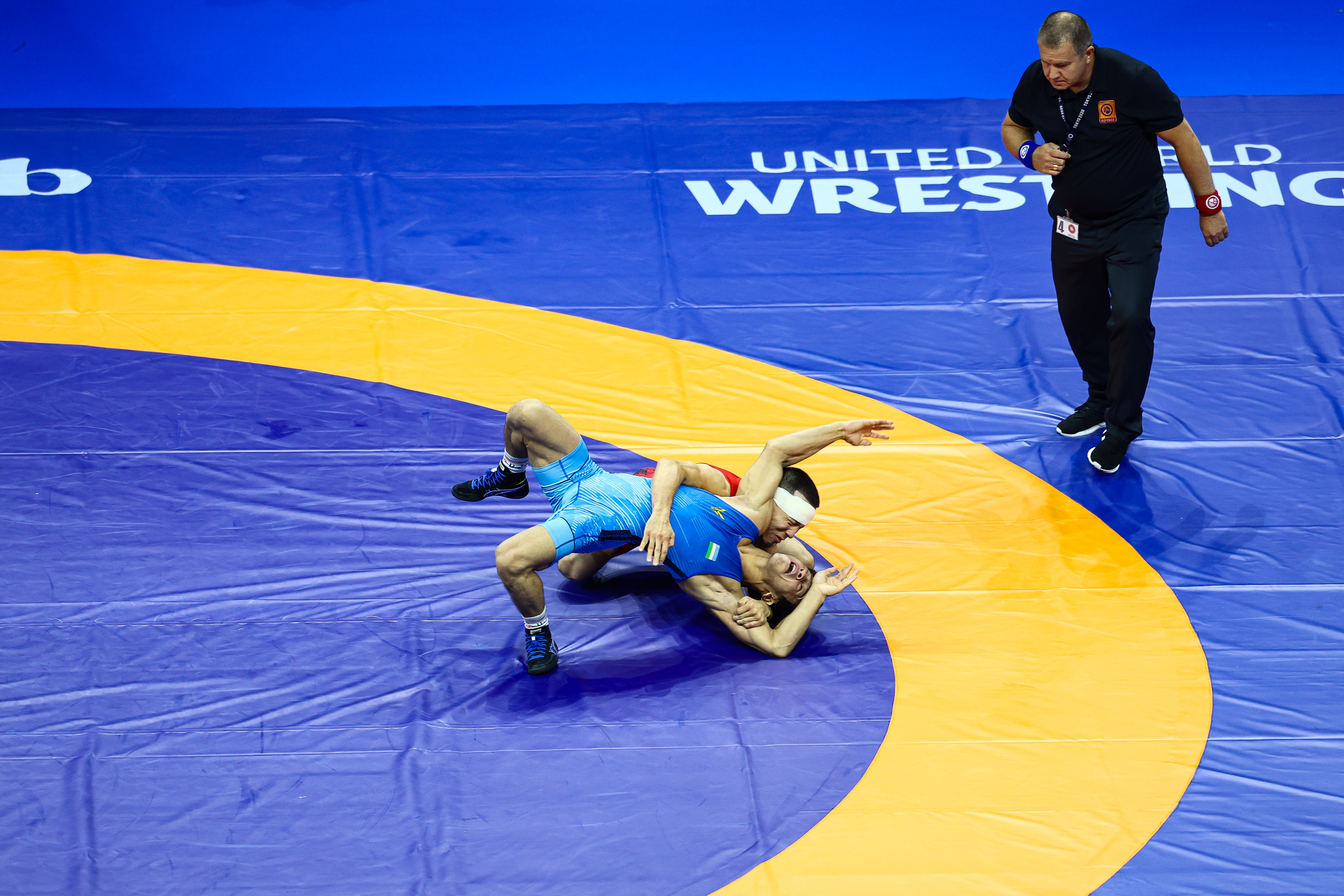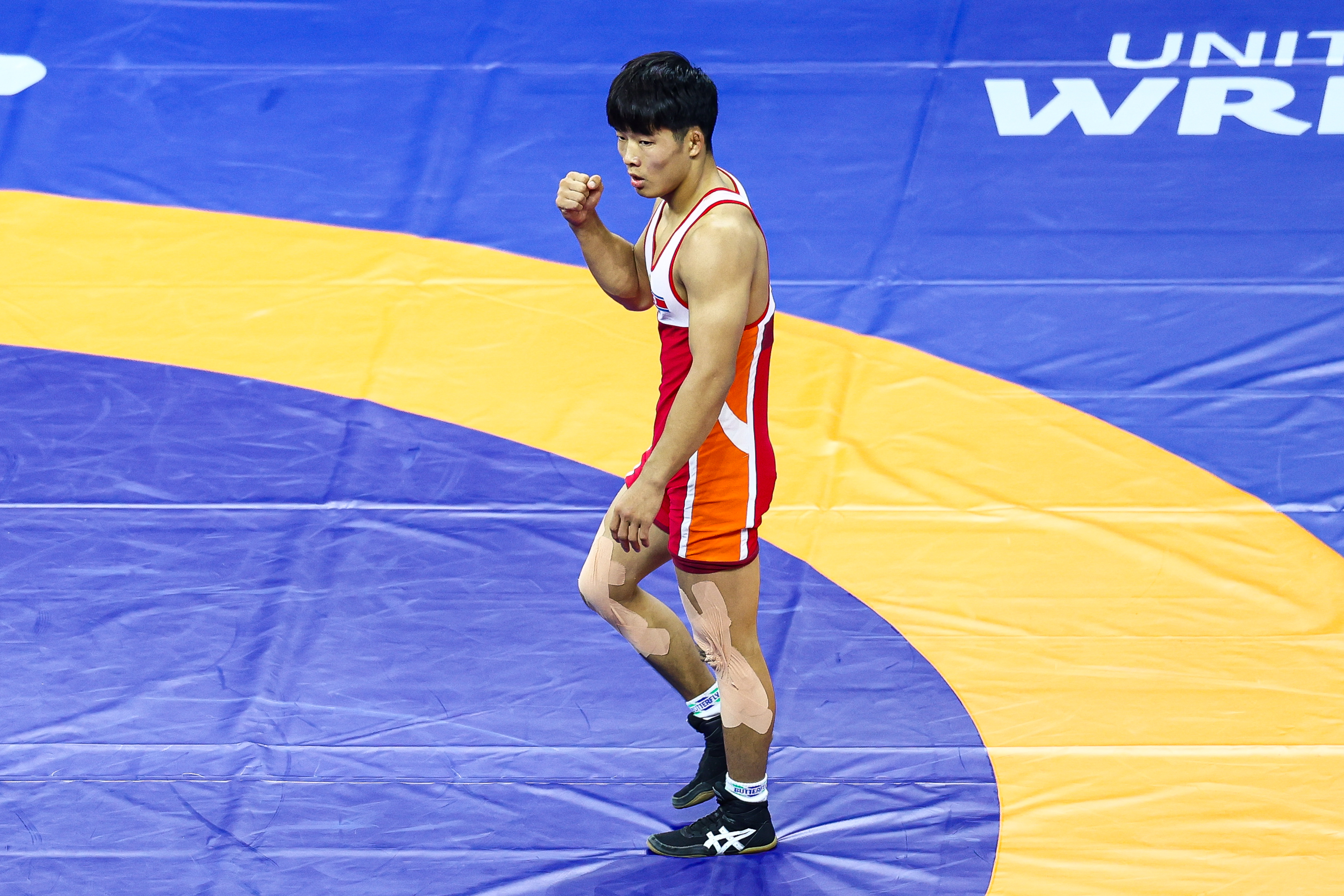Five "Must Watch" Matches from the Zagreb Open
Wednesday, February 13, 2019 - 14:23 By Eric Olanowski

There were countless great matches that took place over the two days of wrestling at the first Greco-Roman Ranking Series event of the year, the Zageb Open, and we took the time to compile a list of the ten best matches with the most action and biggest storylines.
82kg FINALS - Bulgaria's Daniel ALEKSANDROV erased a 7-0 opening-period deficit and scored eight unanswered points in the final period to upend returning world runner-up Emrah KUS (TUR), 8-7 in the 82kg Zagreb Open gold-medal bout.
Aleksandrov trailed 7-0 after the first two minutes of action. He was dinged for passivity and thrown in the par terre position, where Kus grabbed four-points from a reverse lift and controlled the 5-0 advantage. Aleksandrov found himself down 7-0 after Kus grabbed another two for exposure, but got on the board with a step out point and trailed 7-1 heading into the second period.
The Bulgarian exploded for seven unanswered points in the closing three minutes and hung on to the one-point lead, knocking off the noticeably deflated returning world runner-up, 8-7.
97kg FINALS - Ilia BORISOV (RUS) knocked off returning Budapest world runner-up Kiril MILOV (BUL) to win the 97kg Zagreb Open title. Borisov, the lone Russian finalist, tossed around the returning world finalist with ease and scored the 9-0 technical superiority victory in the opening period.
Borisov grabbed the 1-0 lead after Milov was hit for passivity, then went to work in par terre, throwing Milov for four points and used a pair of gut wrenches to close out the 97kg gold-medal match with a 9-0 technical superiority victory.
77kg QUARTERFINALS - Croatia's Bozo STARCEVIC stunned Olympic champion KIM Hyeonwoo (KOR), 8-2, in the quarterfinals, before ultimately winning his fifth consecutive Zagreb Open title.
Starcevic avenged his 6-4 2016 Olympic bronze-medal bout loss to Kim, where the Korean wrestler claimed his second overall Olympic medal.
In their quarterfinals meeting on Saturday, Starcevic built a commanding 6-0 lead before Kim used an arm-spin to pick up his lone takedown, closing the deficit to 6-2. Starcevic somehow came away from Kim's arm-spin attempt with an exposure of his own and locked up his semifinals win with an 8-2 victory.
130kg SEMIFINALS - Muminjon ABDULLAEV (UZB) blasted U23 world silver medalist Osman YILDIRIM (TUR), 9-0, in the semifinals, picking up his second consecutive victory over a world medalist. Abdullaev's first win over a world medalist came in the quarterfinals when he knocked off 2017 world bronze medalist Yasmani ACOSTA FERNANDEZ (CHI), 2-2.
The Uzbek nearly finished the job off and captured the 130kg gold medal but lost to Norway's Oskar MARVIK in the finals, 1-0.
87kg SEMIFINALS - This all-Hungary semifinals bout was one of the Zagreb Open's most important matches. The reason being, Viktor LORINCZ and Erik SZILVASSY are battling for Hungary's 2019 Astana World Championship spot.
In their Zagreb Open semifinal's meeting, Lorincz scored the critical 3-0 win over the U23 world champion and grabbed a leg up on his fellow Hungarian heading into the second Greco-Roman Ranking Series event, the Hungarian Grand Prix.
Lorincz went on to beat Sweden's Kristoffer BERG, 3-1 in the 87kg finals.


 Mohammadhadi SARAVI (IRI) scores a takedown on Artur SARGASIAN (UWW) in the 97kg final. (Photo: United World Wrestling / Kadir Caliskan)
Mohammadhadi SARAVI (IRI) scores a takedown on Artur SARGASIAN (UWW) in the 97kg final. (Photo: United World Wrestling / Kadir Caliskan) Aidos SULTANGALI (KAZ) scores a four-pointer on Alisher GANIEV (UZB) in the 60kg final. (Photo: United World Wrestling / Jake Kirkman)
Aidos SULTANGALI (KAZ) scores a four-pointer on Alisher GANIEV (UZB) in the 60kg final. (Photo: United World Wrestling / Jake Kirkman) Se Ung RI (PRK) won a bronze medal at the 60kg weight class. (Photo: United World Wrestling / Jake Kirkman)
Se Ung RI (PRK) won a bronze medal at the 60kg weight class. (Photo: United World Wrestling / Jake Kirkman)
Share your thoughts.
Comments